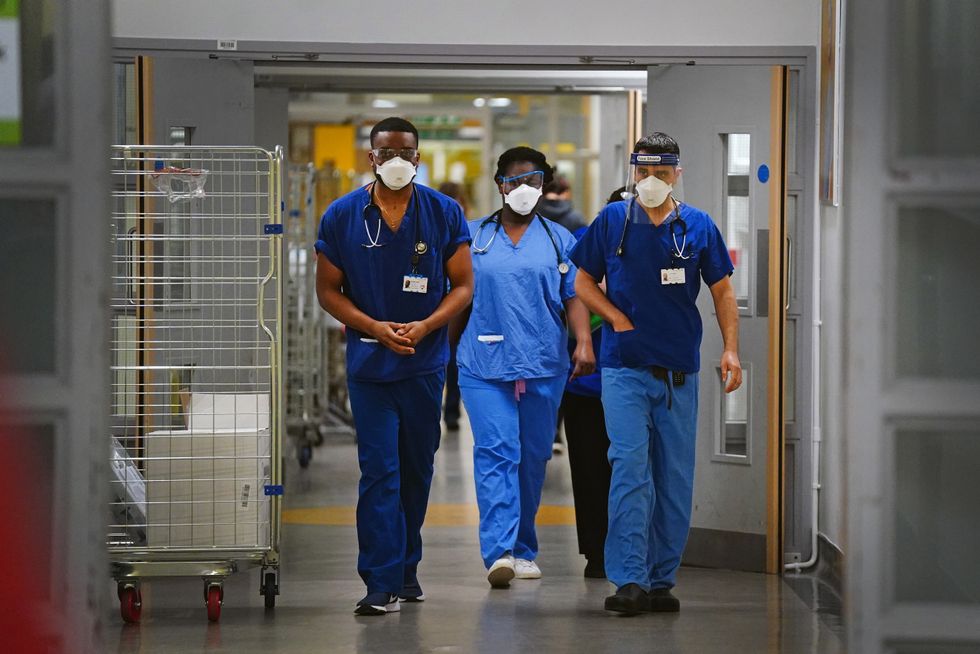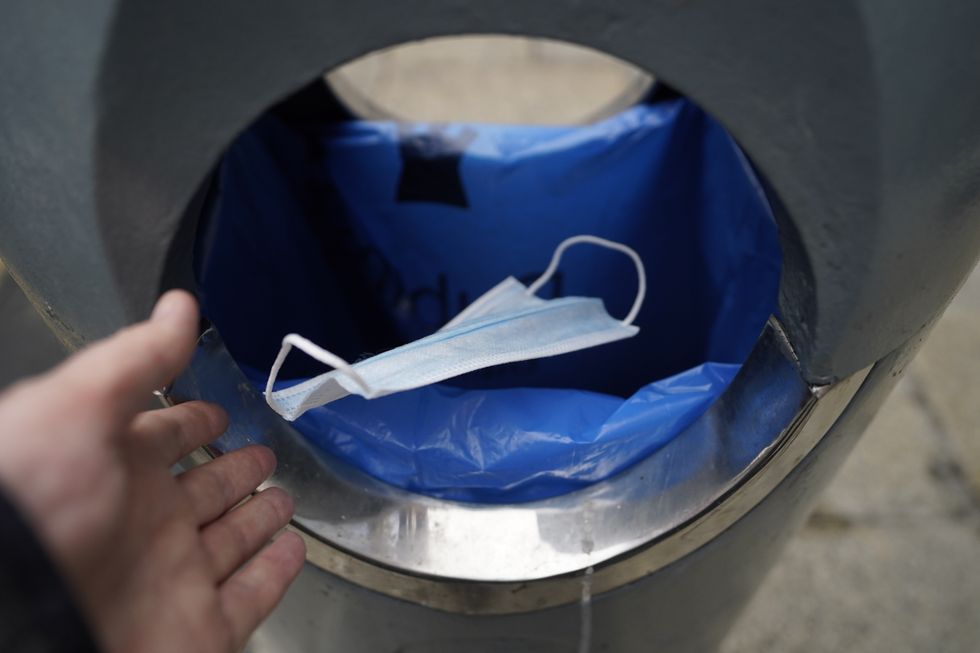Face mask rules scrapped across hospitals in major change to Covid-19 guidelines
It will now be up to individual GPs and hospitals to set their own rules regarding mask wearing
Don't Miss
Most Read
National rules on mask wearing in GP surgeries and hospitals have largely been scrapped under new guidance.
Instead, it is now up to individual GPs and hospitals to make their own decision whether to implement mask wearing or not.
Some GP surgeries and health centres have already taken down signs telling patients to wear masks on entry.
National rules of mask wearing at hospitals have largely been scrapped
Victoria Jones
But a number of hospitals have called on patients and staff to continue to wear masks and face coverings on their sites.
In a letter to all local health bodies, NHS England highlighted new infection control guidance set out by the UK Health Security Agency.
Patients visiting GP surgeries or hospital outpatient appointments and people attending A&E no longer need to wear masks “unless this is a personal preference”, the letter states.
But those with respiratory symptoms – such as a cough – should wear a face mask or face covering “if tolerated”.
Patients admitted to hospital with Covid-19 or suspected to have Covid should be provided with a face mask when they are admitted to a ward or in a communal area “if this can be tolerated and it is deemed safe for the patient”, the letter adds.
Covid-19 patients in single rooms will not usually be required to wear a mask.
Hospital patients who do not have Covid do not need to wear a face mask unless it is their “personal preference”, the letter adds.
But they may be asked to in some high risk areas such as cancer units, blood disorder treatment services or elderly care wards.
With regards to health and care staff, mask use is still advised in high risk areas but the rules should be “guided by local assessment”.
Staff who could come into contact with someone with Covid-19 should also wear masks as part of their personal protective equipment (PPE).
Patients visiting GP surgeries or hospital outpatient appointments and people attending A&E no longer need to wear masks
Niall Carson
This could include Covid wards, A&E departments and GP surgeries.
Universal mask wearing by staff should be considered when there is a local outbreak of cases, the guidance adds.
Staff no longer need to wear masks in non-clinical areas such as staff rooms and offices.
The letter adds that any infection control measures above and beyond those set out in national guidance are “a matter for local discretion”.
It also suggests that most visiting rules should be reverted back to pre-pandemic policies.
Visitors may be asked to wear face masks in high risk areas but won’t be routinely asked to wear masks when accompanying patients to other areas of hospitals, “although they may be encouraged to do so following a local risk assessment”, the letter adds.
The letter, penned by NHS England’s national medical director, Professor Sir Stephen Powis, and Duncan Burton, deputy chief nursing officer for England, suggests that it may take some time for the policies to bed in.
The pair note that the infection control measures introduced during the pandemic “continue to have an impact on capacity and flow”.
“Thank you for everything you and your teams have done over the last two-and-a-half years,” they wrote.
“We know that the pandemic and associated IPC (infection prevention and control) measures continue to have an impact on your capacity and flow, with numbers of Covid-19 patients still elevated and some additional measures still in place.
“IPC guidance has continued to evolve throughout the pandemic, and we are now setting out further changes following updates from the UK Health Security Agency (UKHSA).”
“Any IPC measures beyond those contained in those publications is a matter for local discretion.
“We understand that there may be a period of transition as providers make changes to their operating procedures, especially given local variation in Covid-19 infection levels.”
Hospitals are already setting out guidance for their local populations.
Sheffield Teaching Hospitals in Yorkshire issued a notice to patients and staff saying: “We are still asking patients, visitors, staff and anyone working at one of our hospital or community sites to continue to wear a mask, gel hands and social distance while in our buildings despite the lifting of national restrictions.
“This is to keep vulnerable people as safe as possible.”
A similar call came from Bradford Teaching Hospitals, which issued a statement saying: “All visitors to wards must wear a mask to protect our patients and staff from the spread of Covid-19 and other infections.”
Croydon Health Services are also advising people to still wear masks.
But a different approach has been taken by Ashford and St Peter’s Hospitals in Surrey.
“Following an update on national guidance, visitors and those accompanying patients to outpatient appointments or the emergency department are no longer required to wear a face mask. You may wear a face covering if it is your personal preference to do so,” it said in a statement.
Gloucestershire Hospitals NHS Foundation Trust said: “In line with national guidance, the requirement to wear masks in healthcare settings will end at our hospitals from Tuesday 7 June.
“There are some exceptions, including Oncology & Haematology inpatient/ outpatient areas, Covid-19 cohort areas and any wards with Covid outbreaks.”
The National Deaf Children’s Society has written to every NHS Trust in England urging them to start using transparent face masks.
A letter, written with the British Academy of Audiology, states that deaf patients are facing “serious communication barriers” in healthcare, many of which could be overcome by introducing the masks.
Susan Daniels, chief executive of the National Deaf Children’s Society, said: “Transparent face masks are fully approved and they could transform the healthcare experience for deaf people. Every Trust in the country needs to make the investment now because it really could be game-changing.”













